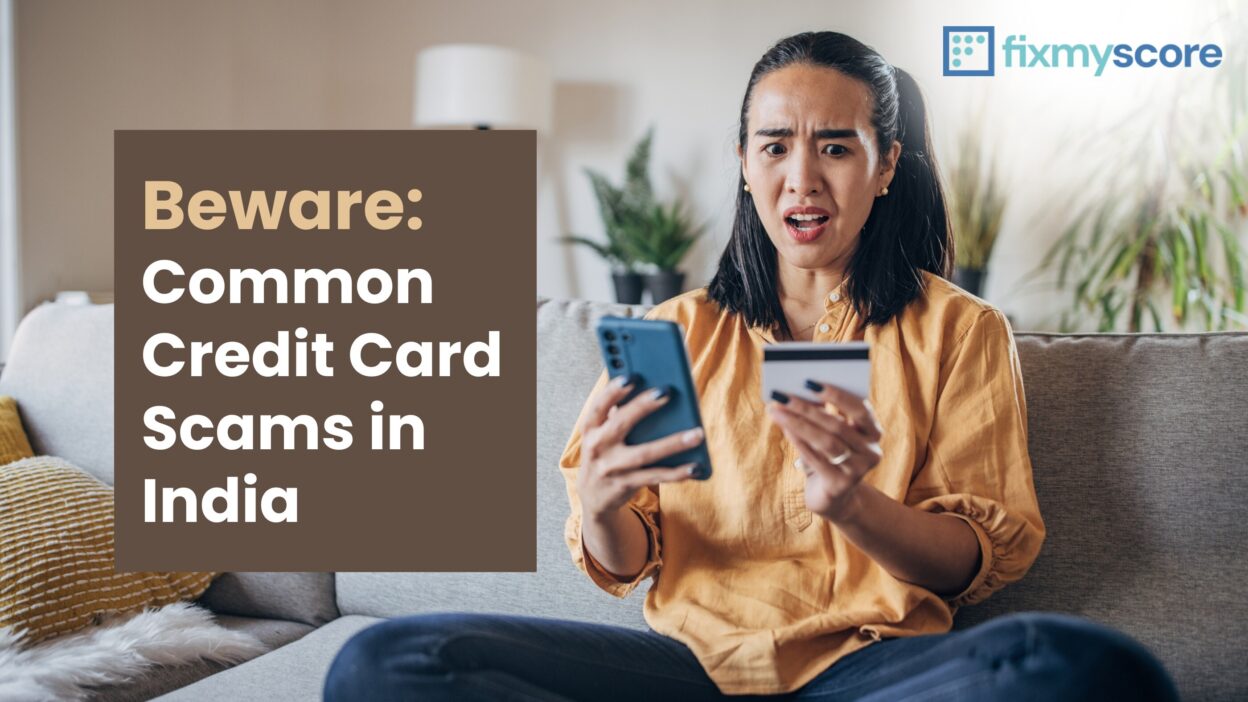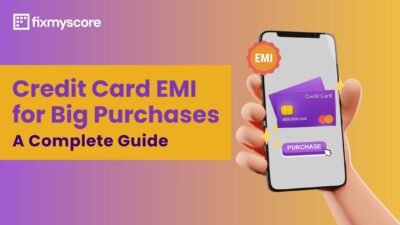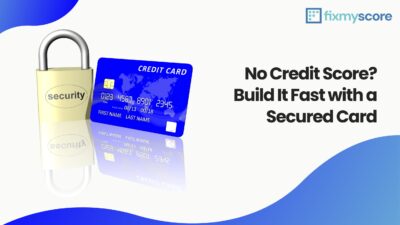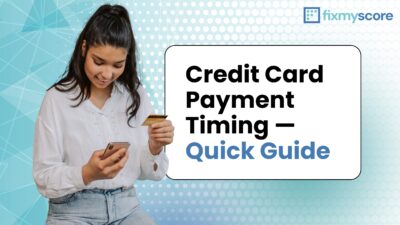Credit cards are for convenience, but for many in India, they have also become a gateway for financial fraud. With online shopping, UPI transactions, and digital banking on the rise, credit card scams in India have also evolved. They are becoming more sophisticated and harder to spot.
If you have ever worried about credit card fraud, you’re not alone. According to RBI data, thousands of such fraud cases are reported every year, costing consumers and banks crores of rupees. The good news? Most scams can be avoided with awareness and vigilance.
In this guide, we will break down the most common credit card scams in India, explain how they work, and share practical steps on how to avoid credit card fraud. Also, know how FixMyScore can help protect your financial health.
1. Phishing Scams
Phishing is one of the most widespread credit card frauds in India. In these scams, fraudsters send fake emails, SMS, or WhatsApp messages pretending to be from your bank, payment service, or even RBI. They use urgent language like “Your card will be blocked” or “Verify your account now” to trick you into clicking malicious links.
Once you click, you’re redirected to a fake website that looks exactly like your bank’s portal. Enter your details there, and you’ve unknowingly handed over your credit card number, CVV, and OTP to criminals.
How to Avoid:
- Never click on suspicious links, especially if the message creates panic.
- Always verify the sender’s official ID or phone number.
- Access your bank account only through official apps or typing the URL directly.
2. Skimming and Cloning
Skimming involves using a small hidden device on card-swiping machines or ATMs to steal card information from the magnetic stripe. Fraudsters then create a cloned card and use it for unauthorized purchases.
It’s particularly common at ATMs in poorly monitored areas or even at certain retail outlets where the fraudster has access to the payment terminal.
How to Avoid:
- Use ATMs in well-lit, secure locations.
- Check for any loose or unusual attachments on ATMs or swiping machines.
- Opt for chip-and-PIN cards over magnetic stripe-only cards.
3. Vishing (Voice Phishing)
In vishing scams, fraudsters call and pretend to be from your bank’s customer care or credit card department. They might say your card has suspicious transactions or offer you a “free upgrade”. But in reality, they’re trying to get your CVV, PIN, or OTP.
How to Avoid:
- Remember: Banks never ask for sensitive information over the phone.
- Hang up and call your bank directly using the number from your official statement or website.
- Report suspicious calls to your bank immediately.
4. Fake Cashback & Rewards Offers
With the rise of online shopping, many scams now revolve around fake cashback or rewards programs. Fraudsters send messages claiming you’ve won points or cashback — you just need to “verify” your details to claim it.
The verification process is where they trick you into giving personal or card information, or even making a “small” payment to a fake account.
How to Avoid:
- Verify offers directly with your bank or the brand’s official website.
- Be watchful of any scheme that requires you to pay money upfront to receive rewards.
5. Online Shopping Fraud
Fake e-commerce websites and social media ads are increasingly common. They lure you with unbelievably low prices or exclusive deals, take your payment details, and either send counterfeit goods or nothing at all.
Some scams even involve “card-on-file” fraud, where your details are stored and later misused.
How to Avoid:
- Shop only from verified websites and apps.
- Look for secure payment gateways (https:// and lock symbol).
- Use virtual cards for online payments when possible
What to Do If You’ve Been Scammed
If you suspect or confirm fraudulent activity:
- Block your card immediately via your bank’s app or helpline.
- Report to your bank and request a dispute for unauthorized transactions.
- File a complaint with the cybercrime portal
- Monitor your credit score for unusual activity. Repeated fraud can damage your credit health.
Also read: How Often Should You Do a Free Credit Score Check Online?
How FixMyScore Can Help
At FixMyScore, we know that falling victim to a credit card scam in India doesn’t just cause financial loss — it can also hurt your credit score if fraud leads to unpaid dues or defaults in your name.
Our AI-powered credit score repair services help you:
- Access your credit score immediately plus your entire credit report
- Get clear insights into the factors helping or hurting your credit score
- Receive personalized action plans to rebuild and strengthen your credit health
- Monitor your credit score for any suspicious activity
- Stay on track with smart alerts for all upcoming payments
Get Started with FixMyScore’s Credit Repair Services
Conclusion
Protect your credit, protect your future. Credit card scams in India are evolving, but with the right precautions, and the right support, you can stay ahead of fraudsters.
FAQs on Credit Card Scams in India
1. What is the most common type of credit card fraud in India?
Phishing and skimming remain the most reported types, but online shopping fraud is also on the rise.
2. Can banks refund money lost to credit card fraud?
Yes, if you report promptly and it’s proven you were not negligent. RBI guidelines protect consumers from zero liability in certain cases.
3. How can I secure my credit card for online transactions?
Enable OTP-based verification, use trusted websites, and consider virtual card numbers.
4. How does credit card fraud happen?
Fraud can occur when criminals obtain your card information through various means – such as stealing your physical card, skimming your card details, or accessing your account information online – and then use it to make unauthorized transactions.
5. How can I detect credit card fraud on my account?
Monitor your credit card statements regularly for any suspicious or unfamiliar transactions. If you notice unusual activity, contact your card issuer immediately. Banks and financial institutions have sophisticated fraud detection systems that can help identify and trace unauthorized transactions.




[…] Learn The Most Common Credit Card Scams in India (And How to Avoid Them). […]